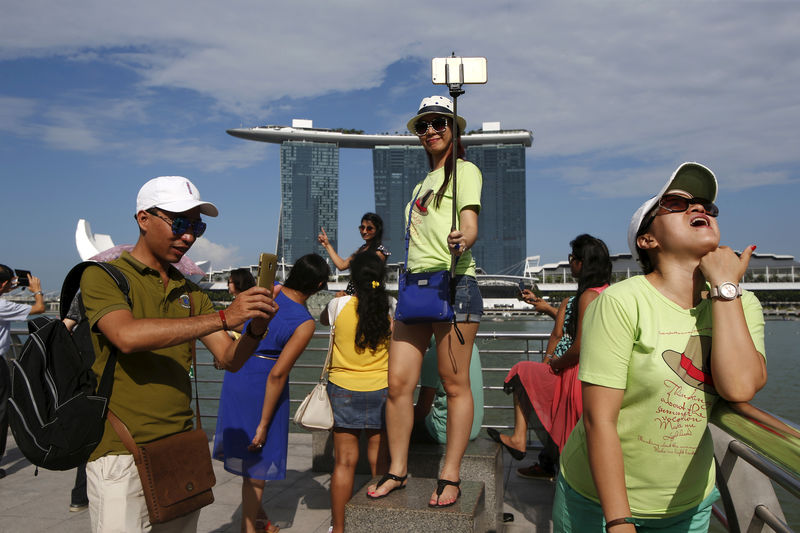By Aradhana Aravindan
SINGAPORE (Reuters) - Singapore received a record 18.5 million visitors last year as more tourists arrived in the city-state from its top markets such as China and India, but growth in their spending slowed as they cut back on shopping, data showed on Wednesday.
Tourism receipts rose 1 percent to S$27.1 billion ($20 billion) in 2018, based on preliminary estimates. That was slower than a 4 percent rise in the previous year as tourists shopped less on items like gifts and souvenirs.
Singapore saw a 6.2 percent rise in travellers in 2018 from the year earlier, the Singapore Tourism Board (STB) said. Arrivals from China, its biggest market, rose 6 percent to 3.4 million, while those from India, another major market, rose 13 percent to 1.4 million.
The data tracks a global trend of increased travelling but reduced spending, according to the STB. Tourists' spending power was also hit by a stronger Singapore dollar versus some other currencies.
The board forecast visitor arrivals of 18.7 million to 19.2 million for 2019, a rise of 1-4 percent. It expects a 1-3 percent growth in tourism receipts at S$27.3 billion to S$27.9 billion this year.
The STB said challenges in 2019 included competition from regional destinations, as well as a potential slowdown in outbound travel from China as trade tensions with the United States hit sentiment in a slowing economy.
"We are still forecasting growth from China this year. It will probably be a little bit more moderate compared to past years," said Keith Tan, chief executive of the STB.
Singapore, which relies on tourism for about 4 percent of its economic output, is famed for its glitzy shopping malls, hawker food, casinos and the Formula One night race. It has long been a popular well-connected destination for corporate travellers as well as holidaymakers, many of whom use it as a stopover to other popular spots in Southeast Asia.

Last year, Singapore won added publicity after it hosted an unprecedented meeting between U.S. President Donald Trump and North Korean leader Kim Jong Un. 'Crazy Rich Asians' - the Hollywood hit film set in Singapore - was another boost to the city-state's image.